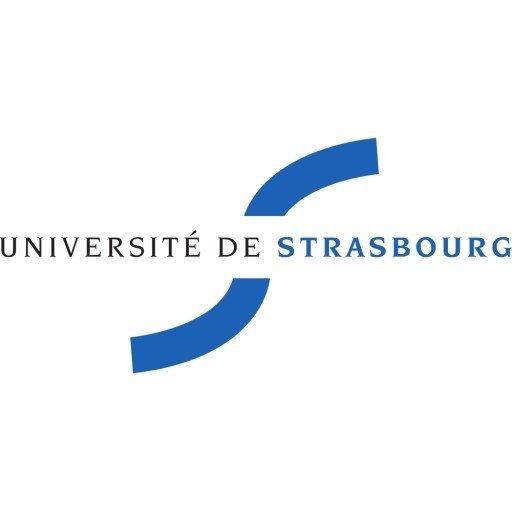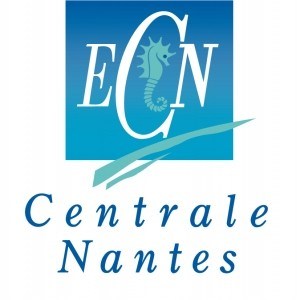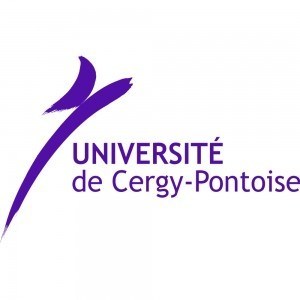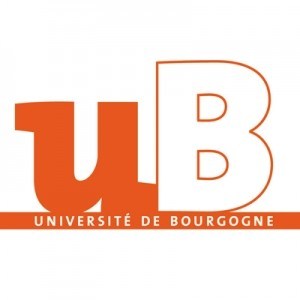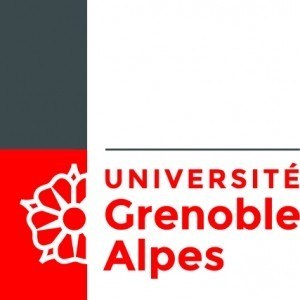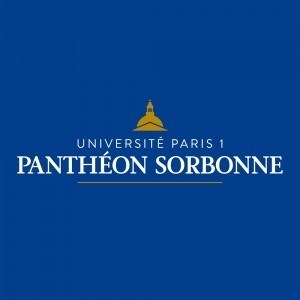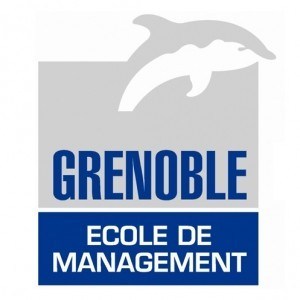Photos of university / #unistraofficiel
The Bachelor’s Degree in Computational Engineering at the University of Strasbourg provides students with a comprehensive education in the principles and applications of computational methods across various engineering disciplines. This program is designed to equip students with a solid foundation in mathematics, computer science, and engineering sciences, enabling them to model, simulate, and analyze complex systems in fields such as mechanical, electrical, civil, and environmental engineering. The curriculum combines theoretical coursework with practical laboratory exercises, ensuring students gain hands-on experience in programming, algorithm development, numerical analysis, and the use of specialized software tools. Throughout the program, students are encouraged to develop problem-solving skills, critical thinking, and an understanding of interdisciplinary approaches necessary for tackling real-world engineering challenges. The program also emphasizes the importance of teamwork, communication, and project management skills, preparing graduates for productive careers in industries such as aerospace, automotive, energy, information technology, and research. Students have access to modern laboratories and computing resources, fostering an environment conducive to innovative research and applied learning. Graduates of the Computational Engineering degree are well-equipped to pursue advanced studies or enter the workforce as engineers, analysts, or developers in various sectors that rely on computational techniques for design, optimization, and analysis. The University of Strasbourg's strategic partnerships with industry and research institutions provide students with internship opportunities, industry projects, and potential employment pathways, ensuring graduates are ready to meet the demands of a rapidly evolving technological landscape. The program is committed to academic excellence, fostering in students a blend of technical expertise, creativity, and adaptability essential for success in today’s competitive environment.
Prerequisite :
- For the first year (M1) : Students with a Bachelor degree (L3 level in the French system : 3 years college degree) in Engineering Sciences (mechanical, civil or materials), mathematics or physics, can be accepted in the first year of the Master. A sufficient knowledge of the English language is necessary. Knowledge of the French language will be appreciated but is not necessary. A specific commission, who will make the final decision for acceptance or rejection, will evaluate the applications.
- For the second year (M2) : The second year is the logical continuation of the first year but is open to students who have a good engineering background such as students from French schools of engineers (INSA, ENSI …) or students with equivalent background. A specific commission, who will make the final decision for acceptance or rejection, will evaluate the applications.
- Registration : aria website
| Semestre 1 | 30 CREDITS |
|---|---|
| 10 UE | |
| Programming language | 3 ECTS |
| Computing project | 3 ECTS |
| Mathematical methods for physics | 3 ECTS |
| Continuum Mechanics | 3 ECTS |
| Numerical resolution of equations | 3 ECTS |
| Partial differential equation and their modelling | 3 ECTS |
| Computational fluid mechanic, incompressible flows | 3 ECTS |
| Free UE | 3 ECTS |
| Introduction to project management and communication | 3 ECTS |
| Project | 3 ECTS |
| Semestre 2 | 30 CREDITS |
|---|---|
| 10 UE | |
| Spectral analysis | 3 ECTS |
| Advanced finite element/ volume numerical methods | 3 ECTS |
| Computational plasticy | 3 ECTS |
| Computational Fluid mechanics, compressible flows | 3 ECTS |
| Multiscale modelling | 3 ECTS |
| Computational dynamics | 3 ECTS |
| Computational analysis for statistical methods | 3 ECTS |
| Measurement and Identification | 3 ECTS |
| Project M1 S2 | 3 ECTS |
| Constituve laws for rheological fluids | 3 ECTS |
| Semestre 3 | 30 CREDITS |
|---|---|
| 10 UE | |
| Applied Computational Engineering for heat and mass transfer | 3 ECTS |
| Applied Computational Engineering for materials and structures | 3 ECTS |
| Visualization and grid generation | 3 ECTS |
| Computational fluid dynamics project | 3 ECTS |
| Advanced utilization of computational solid mechanics codes | 3 ECTS |
| Advanced computation in biomechanics | 3 ECTS |
| Development and utilization of simulation tools for chemical engineering | 3 ECTS |
| Free software in CFD and CSM | 3 ECTS |
| Qualicy policy and eco-conception | 3 ECTS |
| UE free | 3 ECTS |
| Semestre 4 | 30 CREDITS |
|---|---|
| Master Thesis | 30 ECTS |
Program requirements for the Master's degree in Computational Engineering at the University of Strasbourg typically encompass a combination of academic prerequisites, language proficiency, and application procedures. Applicants are generally expected to hold a Bachelor's degree or equivalent in Engineering, Applied Mathematics, Computer Science, or related fields from a recognized institution. The program emphasizes strong foundations in mathematics, programming, and engineering principles, so candidates with coursework or experience in these areas are preferred. Proficiency in English is mandatory, with applicants often required to submit TOEFL or IELTS scores demonstrating their ability to comprehend and communicate effectively in an academic setting; minimum scores may vary but generally align with international standards. Additionally, some programs may require GRE scores or other standardized tests to assess analytical and quantitative skills. Submit an official academic transcript detailing previous coursework and grades, along with a curriculum vitae highlighting relevant academic and professional experiences. Letters of recommendation from professors or professionals familiar with the applicant's capabilities can bolster the application. A personal statement outlining motivation, career objectives, and reasons for choosing Computational Engineering is also typically necessary. Applicants should prepare to provide proof of identity and upload digital copies of diplomas during the online application process. The application process may include an interview, either in person or via video conferencing, especially for competitive applicants. Non-native English speakers might need to demonstrate English proficiency unless they have completed previous education in English. It is advisable to review specific admission criteria on the university's official website or contact the admissions office directly for the most accurate and current information. The program aims to develop advanced skills in computational methods, modeling, simulation, and data analysis, preparing graduates for careers in research, industry, and academia.
The financing of the Computational Engineering program at the University of Strasbourg typically involves a combination of various funding sources to support both domestic and international students. Tuition fees for this program are structured according to the regulations set by the university and the French government, with differences between European Union and non-EU students. For EU students, fees tend to be moderate, reflecting the public university status, and are intended to cover administrative costs and access to facilities. Non-EU students generally pay higher tuition fees, which contribute to the university’s budget for maintaining high-quality educational standards and infrastructure.
In addition to tuition fees, students have access to various scholarships and financial aid programs. The university collaborates with French governmental agencies, European Union funds, and private foundations to provide scholarships targeted at outstanding students, students facing financial hardship, or those pursuing research components within the program. Erasmus+ mobility grants are also available for students wishing to participate in exchange programs with partner universities in Europe, which can help offset living and travel costs.
Students can also consider external funding options such as regional, national, or international scholarships, depending on their nationality, academic excellence, or specific circumstances. The university’s financial aid office provides guidance and assistance in applying for these scholarships. Furthermore, some students may opt for student loans, which are available through French banks and financial institutions, often with favorable terms for students enrolled in recognized degree programs.
Part-time work opportunities are available on or near the university campus, and the university encourages students to balance employment with their studies, providing support through career services. Many students also benefit from research assistant positions if they are involved in research projects within the program, which can provide additional income and practical experience.
In summary, the financing of the Computational Engineering program at the University of Strasbourg is structured to ensure that students have access to affordable education, extensive scholarship opportunities, and support for external funding sources. The university's comprehensive financial aid packages aim to reduce barriers to high-quality education and facilitate student success throughout their studies.
Computational Engineering at the University of Strasbourg offers a comprehensive and multidisciplinary curriculum designed to equip students with the fundamental knowledge and practical skills necessary for modern engineering challenges. The program is tailored to prepare students for careers in various sectors including aerospace, automotive, energy, robotics, and information technology, emphasizing the integration of computational methods with engineering principles.
The curriculum covers core areas such as applied mathematics, computer science, software development, and physics, complemented by specialized modules in numerical analysis, simulation techniques, and data management. Students gain proficiency in programming languages such as Python, C++, and MATLAB, enabling them to develop algorithms and models for complex systems. The program also emphasizes the importance of software engineering best practices, project management, and collaborative work, thereby fostering teamwork and communication skills essential for professional environments.
Throughout their studies, students engage in practical projects, laboratory work, and internships that provide hands-on experience in modeling and simulating real-world problems. The university collaborates with industry partners, offering opportunities for internships and joint research projects, which enhance employability and provide insight into current technological trends.
The academic structure typically includes coursework in mathematical modelling, computational physics, control systems, and data analysis, culminating in a capstone project or thesis that demonstrates students' ability to apply their knowledge to solve complex engineering problems. The program is delivered in a bilingual format, often incorporating both French and English, to prepare students for an international career landscape.
Admission requirements generally include a scientific baccalaureate or equivalent, with a strong background in mathematics and physics. Students are expected to demonstrate analytical skills, problem-solving abilities, and motivation for computational engineering. The faculty members are experienced researchers and professionals committed to providing high-quality education and mentoring.
Graduates of the Computational Engineering program at the University of Strasbourg are well-positioned for careers in research, development, and innovation within the public and private sectors. They may also pursue further studies at the master’s or doctoral level to deepen their expertise. The program’s focus on both theoretical foundations and practical applications ensures that graduates are capable of addressing complex technical problems and contributing to technological advancements on an international scale.
